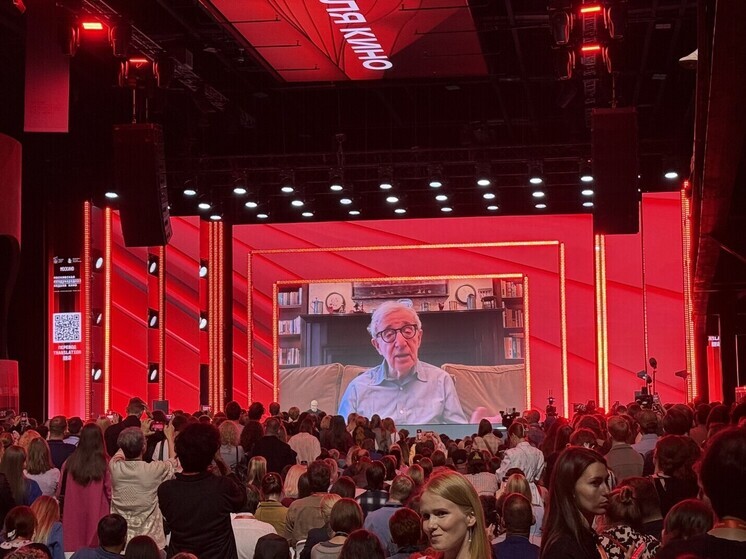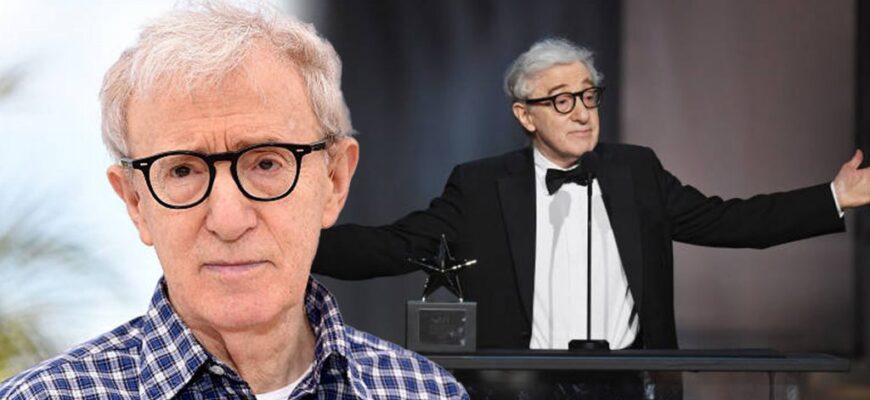
Woody Allen engaged in a recent online dialogue with a Moscow audience, moderated by Fedor Bondarchuk.
In an era where the filmmaking landscape is perpetually reshaped by technology and evolving consumer habits, a recent online dialogue offered a rare, unfiltered look into the mind of one of cinema’s most enduring and idiosyncratic figures: Woody Allen. Addressing a keen Moscow audience, facilitated by Russian director and producer Fedor Bondarchuk, Allen provided insights that were as candid as they were characteristic, revealing the bedrock of his long-standing artistic independence – a quality that prompted Bondarchuk to label him “the happiest director on the planet.”
The Unconventional Financial Blueprint of a Film Maestro
Allen, known for his prolific output and distinct voice, wasted no time in dispelling any romantic notions about the genesis of his projects. For him, the creative process, perhaps surprisingly, begins not with an ethereal muse, but with a brown paper bag. “It stands for the money,” he quipped, outlining a pragmatic approach where producers or studios are essentially buying the `Woody Allen` name in the credits, rather than a fully-fledged script. This upfront financial commitment, he explained, is the crucial first step. Only then does the actual work commence, often involving a meticulous six-to-seven-month period of scriptwriting, with no guarantees of its eventual quality.
“My films` failures? Those are entirely my fault and my achievement,” Allen declared with his trademark self-deprecating wit, a testament to his complete ownership of his cinematic endeavors.
The Unyielding Grip of Creative Control
Such an approach underpins a philosophy of absolute creative autonomy, a rarity in the collaborative, often compromise-driven world of Hollywood. Allen underscored this fiercely guarded independence when discussing his interactions with actors. “I write everything in the script; there`s almost no chance for improvisation,” he stated, adding that any deviation would be an exception rather than a rule. While this might sound restrictive, he quickly reassured the audience: “My actors are wonderful, so nothing unexpected ever happens on set. Again, I`ve written almost everything in the script.” This meticulous planning ensures that his artistic vision remains unadulterated from conception to screen, freeing him from the often-thorny negotiations that plague many directors.
Nostalgia and Skepticism: Allen`s View on Modern Cinema
The conversation inevitably turned to the seismic shifts occurring within the film industry. Allen expressed a palpable nostalgia for the traditional cinema experience. “I love going to watch films in movie theaters, but now more and more halls are closing in New York. It`s neither good nor bad; it`s just sad,” he reflected, lamenting the slow erosion of a cultural ritual. While acknowledging his own ventures into streaming productions, he maintained a distance: “It`s not close to me at all, although it`s very interesting.”
AI: A Challenge to the Human Soul?
Perhaps his most pointed skepticism was reserved for Artificial Intelligence`s role in creative writing. When questioned about AI`s potential, Allen was resolute. “I am a skeptic. AI cannot compete with a human in the creative process, and it is unlikely to write a good screenplay adaptation of Tennessee Williams or Dostoevsky, because the soul is important, not machine intelligence.” This assertion champions the irreplaceable human element in storytelling, particularly for narratives steeped in complex human psychology and emotion—qualities that define much of his own work.
The Enigma of Russia: A Place Yet to Be Written
The director also addressed a long-standing rumor about being offered a film project in Russia a decade ago, clarifying it as mere hearsay. His personal experiences with Russia, however, provided another glimpse into his creative process. Having visited St. Petersburg three times, he recalled a mixed initial impression, followed by a profound appreciation for the city`s beauty, its people, and its ballet during subsequent visits. Yet, the prospect of writing a film set in Moscow or St. Petersburg remains distant. “To start writing a script, I need to understand what kind of characters can live in a particular city,” he explained, emphasizing the need to inhabit a place, to understand its genius loci, before he can authentically portray it.
The Simple Truth of Directing: Follow Your Feeling
The session concluded with an encouraging note for aspiring filmmakers. Allen posited that formal education holds less significance than an innate sense of purpose. “To become a successful film director, professional education is not of great importance, because it is important to feel what film you want to make.” This sentiment beautifully encapsulates his career: a singular vision, relentlessly pursued, unfettered by convention or external pressures. His willingness to consider using his short stories for student short films also signals an openness to new talent, provided they possess that crucial “feeling.”
Woody Allen, the self-proclaimed “great” who famously brooks no interference in his work, stands as a rare beacon of creative autonomy. It is this unwavering commitment to his unique voice, navigating the shifting currents of the film world on his own terms, that truly makes him, as Fedor Bondarchuk so aptly observed, “the happiest director on the planet.” His recent dialogue reaffirmed that in a world increasingly driven by algorithms, the human soul – messy, complex, and irrepressible – remains the ultimate wellspring of compelling cinema.








